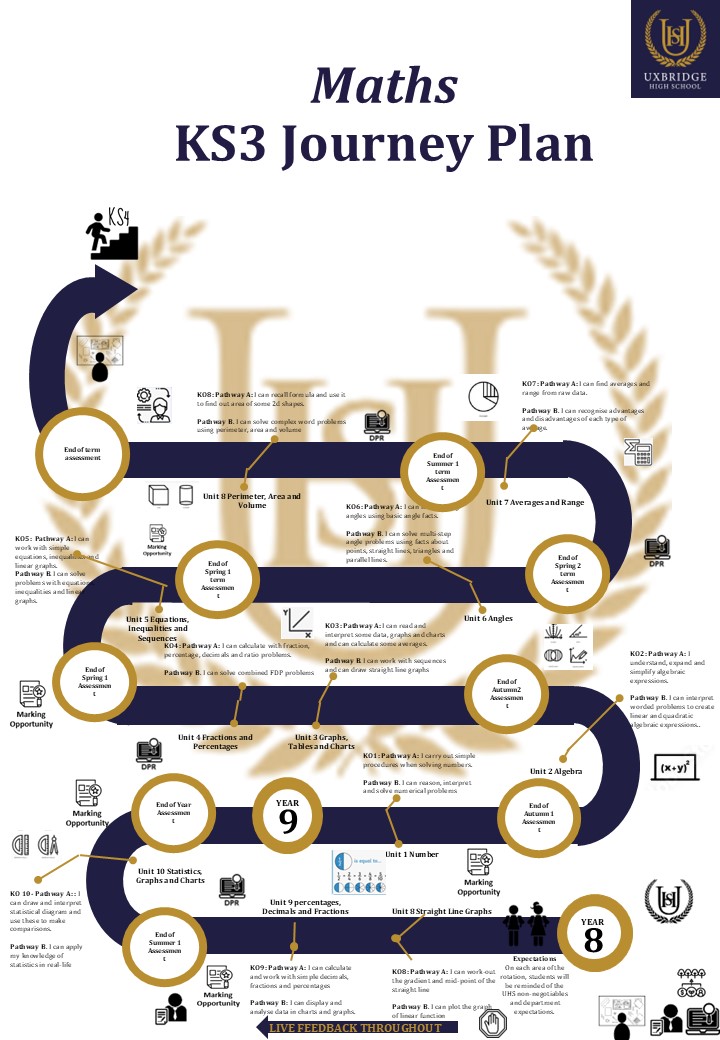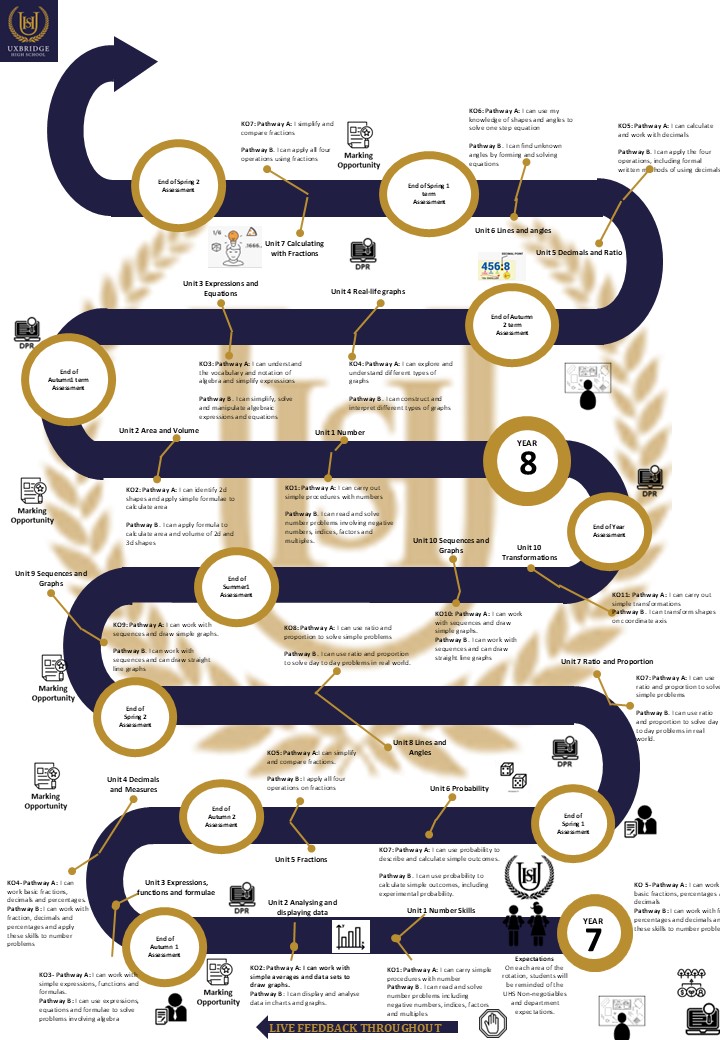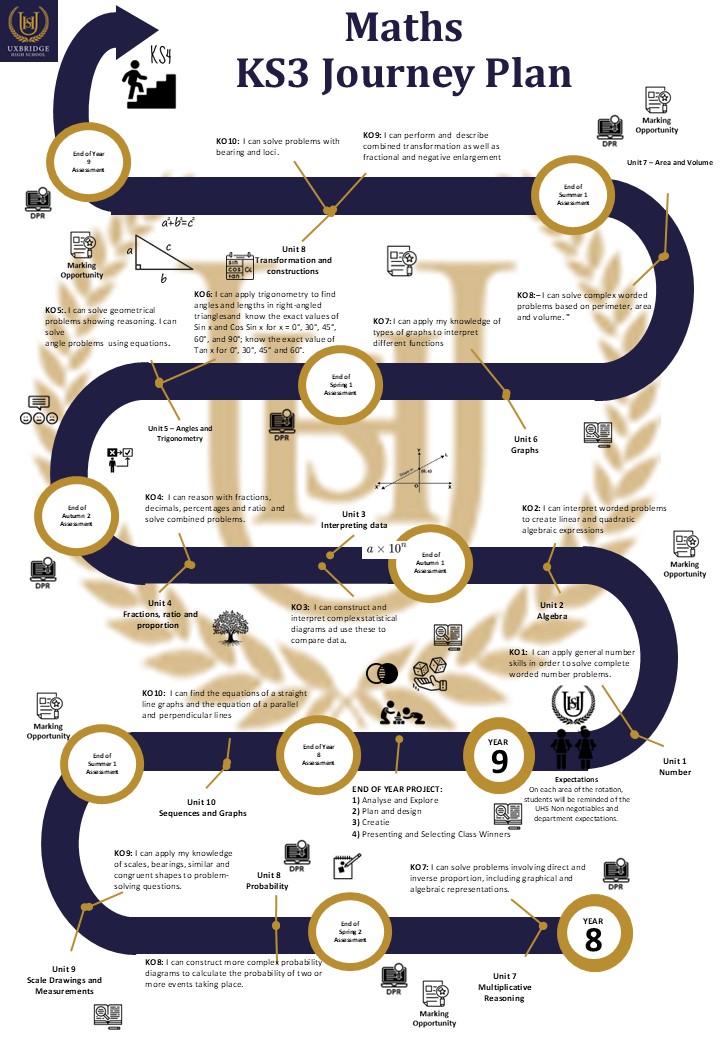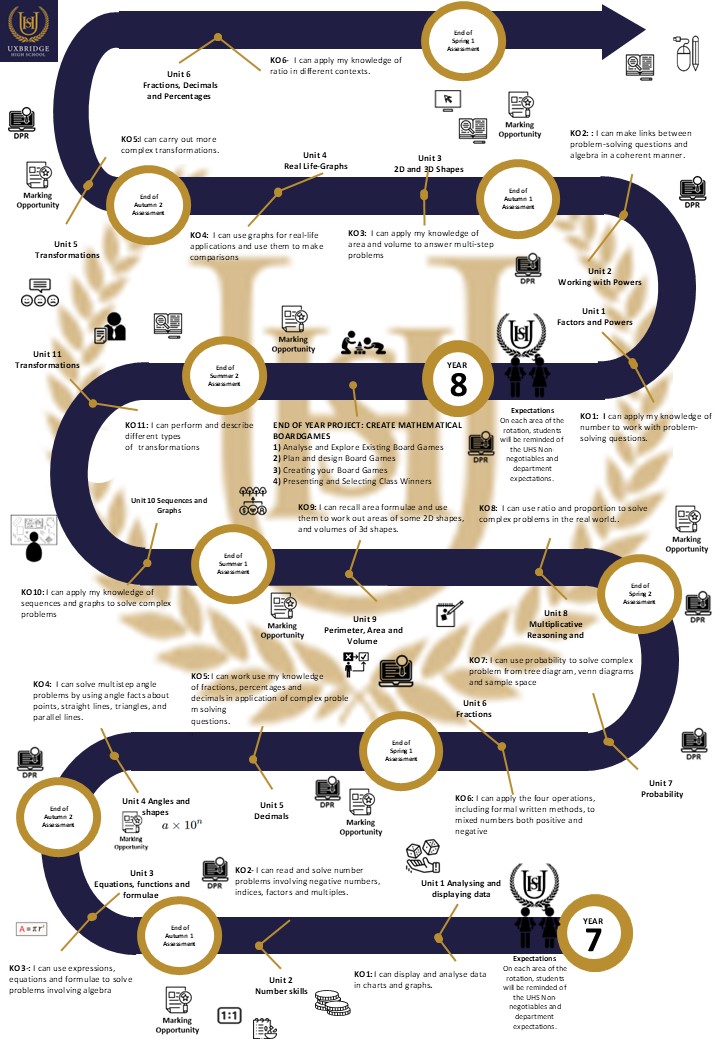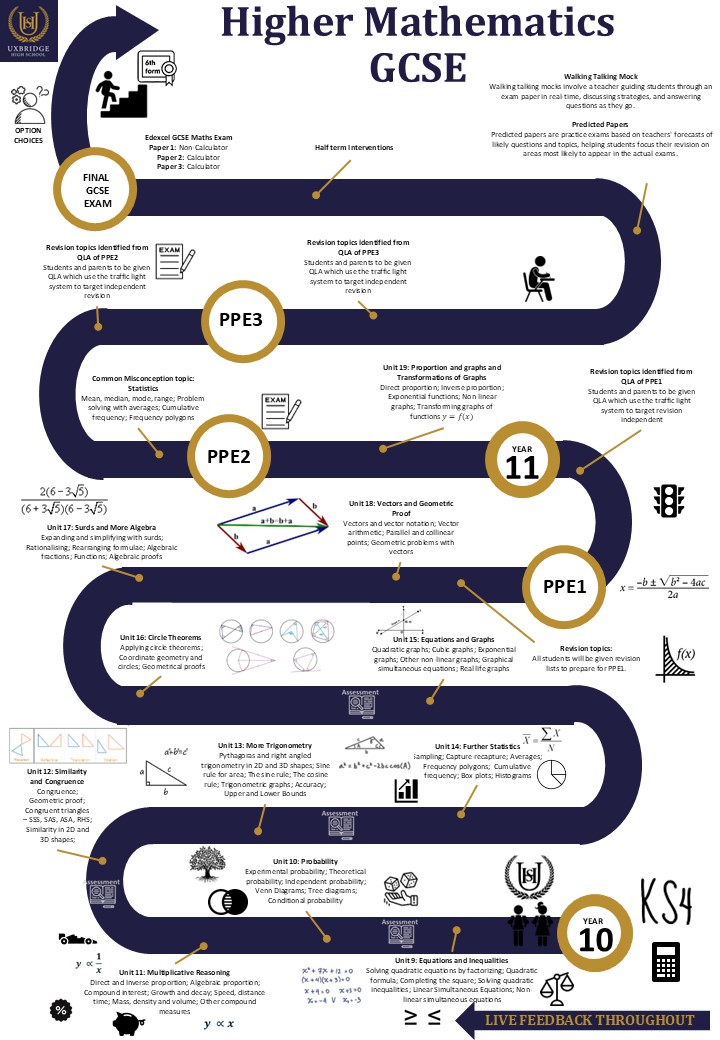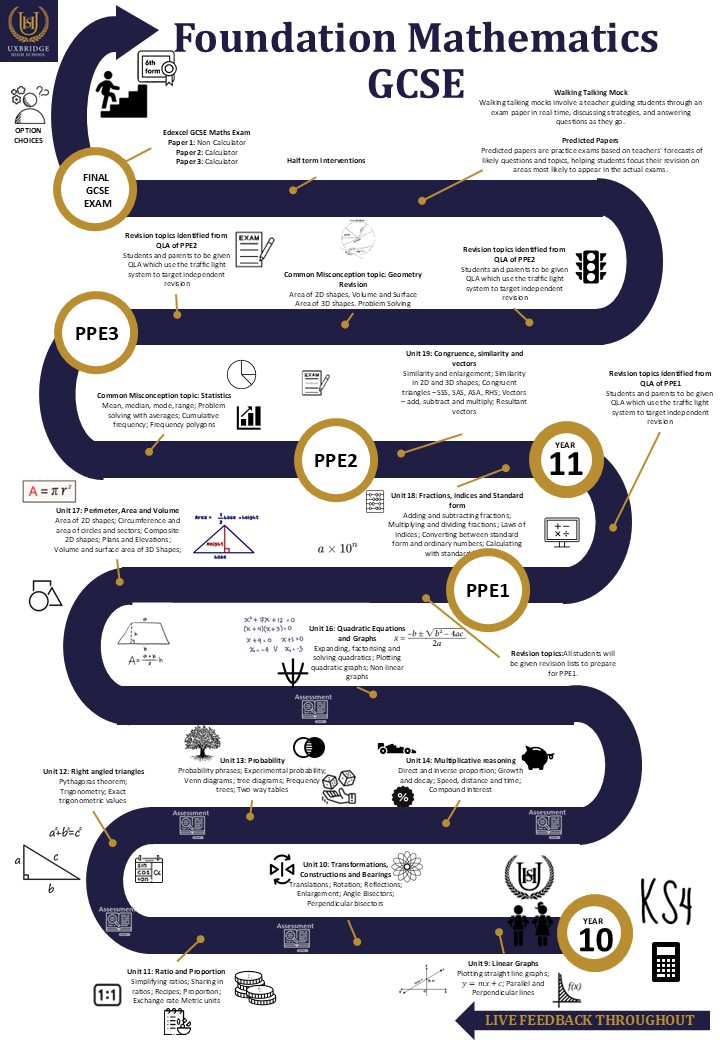Mathematics
Mathematics at Uxbridge High School is designed to develop confident, independent thinkers who understand not just how maths works, but why it works. Across all key stages, we focus on developing students into confident, conceptual learners who can apply mathematical skills to solve real-world problems.
In KS3, students explore the key strands of mathematics- number, algebra, geometry, ratio, and statistics-through a blend of direct instruction, discussion, and collaborative problem-solving. Our focus is on building deep understanding and resilience. Homework is set regularly on Mathwatch to reinforce learning, encourage independent practice, and consolidate key skills taught in lessons.
At KS4, students build on their KS3 knowledge as they study the GCSE curriculum, deepening their understanding and applying it to more complex problems. We support them with a carefully structured curriculum that includes revision booklets, regular exam-style questions, and dedicated time to develop effective revision strategies. Problem-solving remains central, helping students to apply knowledge in unfamiliar contexts. Homework continues to be closely aligned with classroom learning to support steady progress toward exam readiness.
In KS5, students can take A Level and Further Maths, where they explore advanced topics such as calculus, proof, mechanics, and statistical analysis. Students are encouraged to explore the 'why' behind the mathematics, strengthening their conceptual grasp and ability to tackle complex scenarios. Lessons are designed to promote independence, logical thinking, and problem-solving at a high-level skills essential for university and a wide range of careers.
Why study this subject?
Mathematics is not just about numbers, it's about thinking clearly, making decisions, and solving problems. It helps students to develop logical reasoning, perseverance, and the ability to tackle challenges with confidence. These are skills that go far beyond the classroom and are useful in everyday life, from budgeting and time management to understanding the news and making informed choices.
Mathematics is also a gateway subject. It’s essential for careers in science, engineering, technology, finance, architecture, and data analysis, but it’s also highly regarded in fields like medicine, psychology, law, and business. Employers and universities value the analytical and problem-solving skills that maths develops.
Studying maths helps students to become independent thinkers, ready for the demands of modern life and future learning.
What are the career opportunities for students who study this subject?
Mathematics opens the door to a wide range of exciting and rewarding careers. It is a highly respected subject that provides essential skills sought after by employers and universities alike. Students who study maths develop problem-solving abilities, logical thinking, and data handling skills—attributes that are valuable in almost every profession.
Popular Career Pathways:
-
Engineering
-
Finance & Accounting
-
Careers in data science, artificial intelligence, software development, and cybersecurity.
-
Medicine & Healthcare
-
Architecture & Design
-
Science & Research
-
Education.
-
Roles in government, business, marketing, and sports analytics.
-
Economics
-
Law
-
Logistics and Supply Chain Management
-
Aviation and Aerospace
-
Actuarial Science
In short, maths provides a versatile and solid foundation for students to pursue a wide variety of careers, especially in a world that is becoming increasingly data-driven and technology-focused.
Beyond the classroom:
At our school, we believe in bringing mathematics to life beyond the classroom. Students celebrate Pi Day with fun activities and participate in exciting events like Maths World Day, where they engage in themed quizzes and problem-solving tasks. We also encourage students to take part in prestigious competitions like the UKMT Challenges and Maths Feast which is a fun, educational challenge for Year 10 students, focusing on problem-solving and teamwork. In addition, we organise trips such as visiting Legoland to explore the maths behind rollercoasters and taking a trip to Barcelona to study the geometry and symmetry in Antoni Gaudí's architecture. One of the highlights is Maths in Action at the Emmanuel Centre, where students attend talks and workshops with leading mathematicians, bringing real-world applications of maths to the forefront. These experiences help students apply their knowledge, ignite curiosity, and make learning mathematics both engaging and fun.

